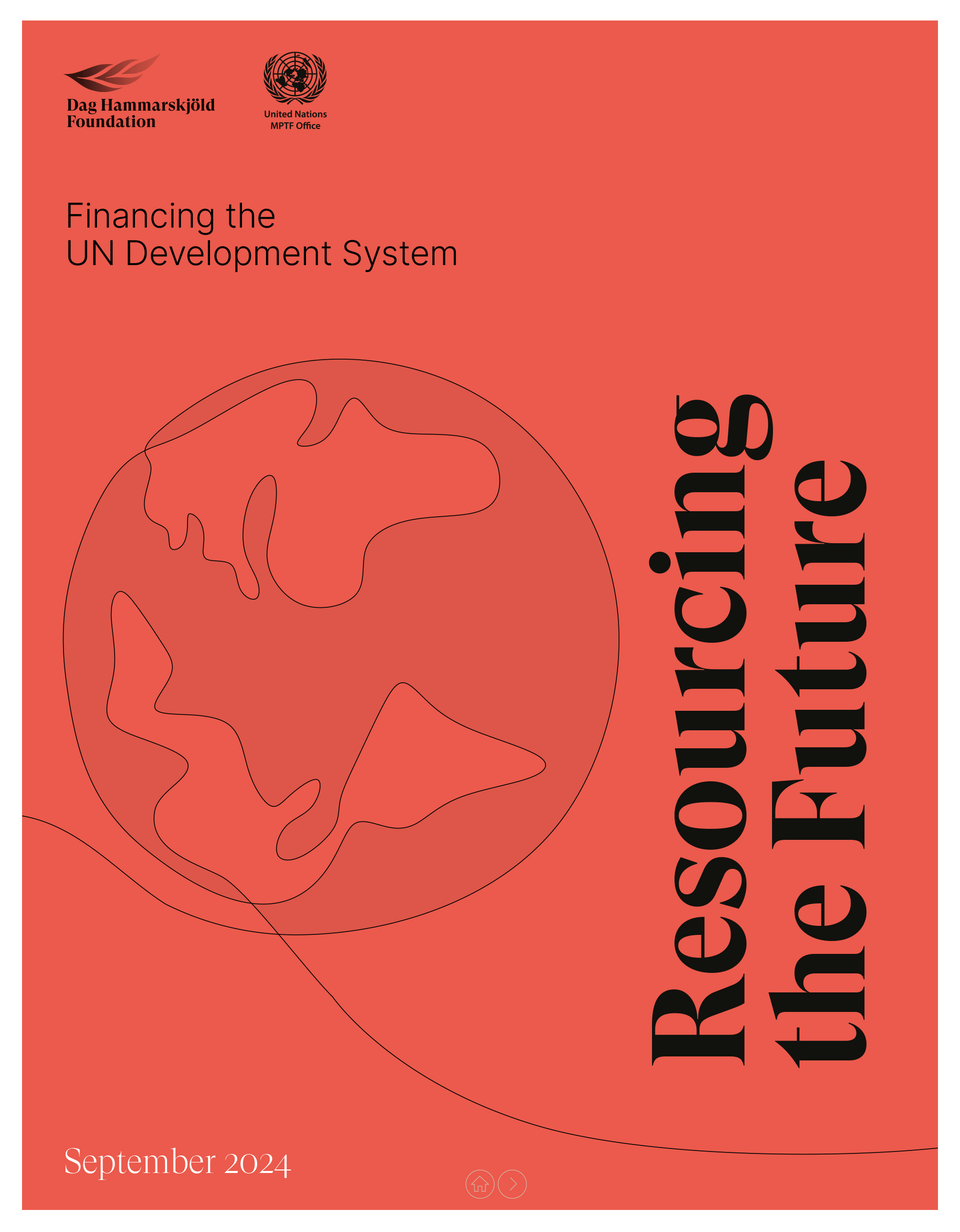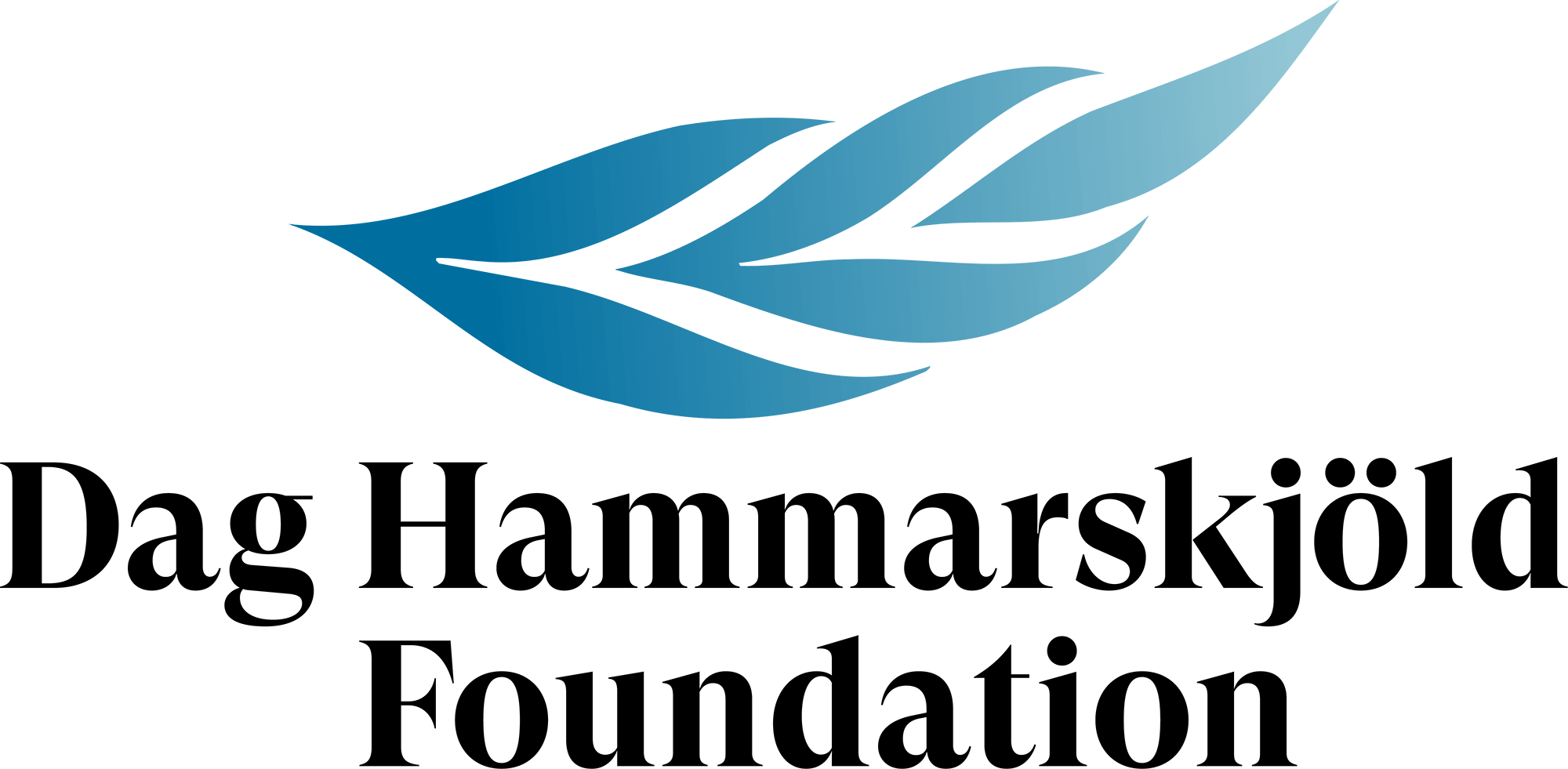Resourcing the Future
Financing the UN Development System: Resourcing the Future is the 10th edition in its series. As in the previous iterations, the report provides an in-depth overview of the financing system and mechanisms of the United Nations development system (UNDS) and maintains the focus on financial data. Part two, the Market place of ideas offers contributions with in-depth overviews and analysis. This dedicated web page continues to be a platform to share the latest and previous reports as well as the interactive datasets.
Our latest report

Resourcing the Future (2024)
The Joint Initiative
The annual report on Financing the UN Development System is the result of a longstanding partnership between the Dag Hammarskjöld Foundation and the United Nations Multi-Partner Trust Fund Office.
Dag Hammarskjöld Foundation
The Dag Hammarskjöld Foundation is a non-governmental organisation established in memory of the second Secretary-General of the United Nations. The Foundation aims to advance dialogue and policy for sustainable development, multilateralism and peace.
Learn moreMulti-Partner Trust Fund Office
The Multi-Partner Trust Fund Office is the UN centre of expertise on pooled financing mechanisms. Hosted by UNDP, it provides fund design and fund administration services to the UN system, national governments and non-governmental partners.
Learn more

